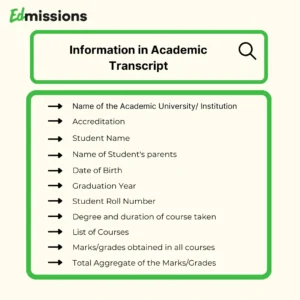Introduction
Have you ever questioned why businesses and colleges place such a high value on top-notch performance? Getting a top-notch degree may be a huge game-changer for overseas students. It’s a golden ticket that may lead to greater job possibilities, higher wages, postgraduate options, and even immigration benefits; it’s not just about marks on paper.
Understanding a First-Class Degree
A first-class degree typically means graduating with the highest academic distinction, usually scoring 70% and above in UK grading systems. In the US, this is often equivalent to a GPA of 3.7–4.0. While grading systems differ across countries, a first-class is universally recognized as a mark of academic excellence.
This distinction signals discipline, consistency, intelligence, and the ability to thrive under pressure—qualities highly attractive to employers and scholarship committees alike.
Academic Prestige and Recognition
Graduating with a first-class degree places you among the top-performing students worldwide. Universities often highlight first-class graduates in their success stories, giving you added visibility. This recognition strengthens your CV and boosts the reputation of the institution you studied at.
Think of it as wearing a badge of honor that says, “I don’t just study—I excel.”
Career Advantages
One of the clearest advantages of having a first-class degree as an international student is employability. Employers often filter applications based on grades, and a first-class can help you stand out from hundreds of applicants.
-
Multinational corporations like Deloitte, PwC, and Microsoft prioritize top graduates.
-
Many companies run fast-track graduate programs where first-class students get preference.
-
Promotions often come faster when you start with a stronger academic background.
Higher Earning Potential
Studies consistently show that graduates with first-class results earn more than their peers. According to the UK’s Higher Education Statistics Agency (HESA), first-class graduates have a better chance of securing jobs that pay significantly above average.
So yes, those extra late-night study sessions can literally translate into extra digits on your paycheck.
Opportunities for Postgraduate Studies
If you’re considering a master’s or PhD abroad, a first-class result is your ticket to full scholarships. Programs like:
-
DAAD in Germany
specifically look for outstanding academic performance.
This means less worry about tuition and more focus on your academic growth.
Immigration and Residency Benefits
Many countries actively encourage top graduates to stay after studies:
-
UK: Graduate Route Visa favors students with strong academic backgrounds.
-
Canada: Express Entry system awards extra points for high-achieving graduates.
-
Australia & EU countries: Offer post-study work visas and easier PR pathways.
So, your first-class degree doesn’t just open academic doors—it might also open residency ones.
Research and Innovation Prospects
With top grades, you’re more likely to be handpicked for funded research projects, international conferences, and innovation hubs. Imagine being invited to collaborate with leading professors or even contributing to groundbreaking global research—that’s the power of academic excellence.
Leadership and Networking Opportunities
Many alumni groups and professional organizations prioritize high-achieving graduates. A first-class degree can give you access to mentorship circles, elite networking events, and even speaking opportunities that build your profile as a thought leader.
Competitive Edge in Entrepreneurship
Dreaming of starting your own business? Investors and incubators often trust graduates with proven discipline and intelligence. With a first-class result, you stand a better chance of securing startup grants, innovation funding, and global accelerator programs.
Social Status and Personal Branding
Let’s be honest—graduating with a first-class earns respect. It elevates your personal brand and adds authority when you speak in professional or academic spaces. You become a trusted voice, not just another graduate.
Country-Specific Benefits
-
UK: Eligibility for programs like Chevening and Tier 2 sponsorship jobs.
-
Canada: PR pathways such as the Canadian Experience Class.
-
USA: Research roles and higher success rates with H-1B visa applications.
-
Australia & EU: Graduate work visas and innovation-focused grants.
Challenges and Realities
Of course, it’s not all rosy. Some challenges include:
-
High expectations in the workplace
-
Intense competition with other first-class graduates
-
Need for soft skills and adaptability
This proves that while a first-class degree is a huge advantage, it’s not the only ingredient for success.
How to Maximize the Benefits of a First-Class Degree
-
Network smartly with peers and professors
-
Pursue internships that give real-world experience
-
Develop soft skills like leadership, problem-solving, and communication
This way, your academic brilliance translates into practical success.
Success Stories of International Students with First-Class Degrees
Countless international students have used first-class results as stepping stones to global leadership. For instance, Nigerian and Indian students have gone from top grades in the UK to securing UN jobs, tech leadership positions, and government roles.
Their stories prove one thing: academic excellence pays off when paired with strategy.
Conclusion
Graduating with a first-class degree as an international student is more than just an academic achievement—it’s a global passport. It opens doors to career growth, postgraduate scholarships, higher salaries, residency opportunities, and personal prestige.
If you’re studying abroad, aim for the stars. Because sometimes, that extra grade can change your entire life trajectory.
FAQs
1. Does a first-class degree guarantee a job abroad?
Not always, but it increases your chances significantly. Employers still look at skills and experience.
2. Can an international student with a second-class degree still succeed?
Absolutely! Many successful professionals didn’t graduate with first-class results but thrived through experience, networking, and resilience.
3. Which countries value first-class degrees the most?
The UK, Canada, Australia, and the USA place strong emphasis on top academic results when granting opportunities.
4. How can I increase my chances of graduating with first-class honors?
Stay consistent, attend lectures, seek mentorship, and balance studies with rest. Planning and discipline are key.
5. Are there scholarships specifically for first-class graduates?
Yes—programs like Chevening, DAAD, and Erasmus Mundus often require or strongly prefer top results.







